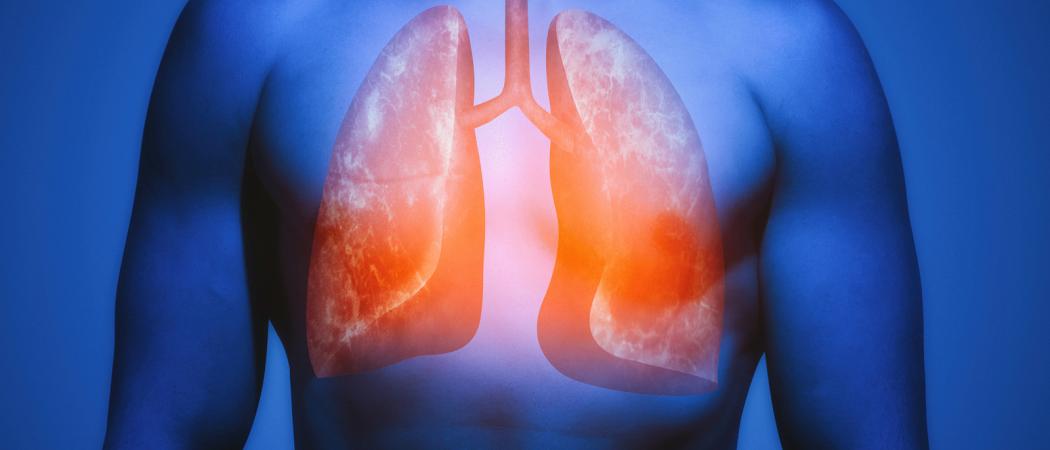Horizon 2020 funding helps start-up Respinova develop ground-breaking treatment

The average person takes 20,000 breaths per day. But for the millions of people suffering from Chronic Obstructive Pulmonary Disorder (COPD), each of these 20,000 breaths is painful and exhausting.
COPD is a progressive, chronic disease that obstructs airflow from the lungs. Nearly one in five Europeans over 40 live with some form of the disease, which results in 300,000 European deaths each year, according to the European Lung Foundation.
But Israeli research, backed by the EU’s Horizon 2020 programme, could alleviate the severe suffering arising from this disease, which costs the EU more than €141 billion annually, according to the European Respiratory Society.
“The major unmet need in Europe and around the world is a treatment that addresses the root cause of COPD complications: small airway collapse,” explains Cliff Ansel, CEO of Respinova, an Israeli start-up trying to develop a revolutionary new treatment for COPD. “Until you can treat this, you only delay the inevitable. When patients keep getting progressively less oxygen into their bodies, eventually, they’ll wind up in the hospital.” One third of COPD sufferers will have to go to the emergency room each year, according to the European Federation of Allergy and Airways Diseases Patients’ Associations.
Respinova’s PulseHaler™ solution aims to get at the root of COPD complications by opening patients’ small airways. Emitting finely tuned pressure waves that open even the deepest, smallest airways, the PulseHaler marks a ground-breaking new approach to COPD treatment. “For patients suffering from COPD, there’s no other solution able to help them quite like this,” says Ansel. “There are several types of devices on the market that address COPD, but none of them has any evidence of directly improving the small airway closure. We’re really treating the fundamental part of the disease and, by definition, that extends across the entire gamut of COPD patients.”
Shifting horizons toward Europe
Respinova’s research is supported by €2.4 million from the EU’s Horizon 2020 SME Instrument programme, which backs research and innovation through open competitive calls for proposals. After being validated in two successful early trials, the programme had enough confidence in the PulseHaler technology to award Respinova Phase I and II grants.
Ansel says that while Respinova initially intended to launch PulseHaler in the US, the Horizon 2020 funding prompted the company to shift its focus to Europe – helping Europeans breathe easier.
While the funds acted as a powerful accelerant, the distinction associated with such a high-profile programme proved decisive in moving the product closer to commercialisation. This is especially true with a larger-scale third clinical trial about to begin.
Given COPD’s staggering impact on millions of people and the current gaps in existing treatments, time is of the essence, and Ansel hails Horizon 2020 as precisely the kind of programme that can bring life-changing treatments to market, sooner, when every second, and every breath counts.
“I’d say the combination of being freed up from having to chase funding, combined with the credibility that comes from being a Phase II project easily shaved a full year off the process of prepping to launch PulseHaler in the EU,” says Ansel.
As one of the most daunting public health challenges confronting researchers and care providers, COPD offers a prime case study in how the innovations that make a real difference in people’s lives will depend on collaboration and cooperation among scientists, companies, and governments across international borders.
EU/Israel collaboration: Greater than the sum of its parts
Through the Horizon programme, the EU has gained exposure to the skills and knowledge of 1,400 leading Israeli researchers. In addition, Israel will have contributed €1.3 billion to Horizon 2020 by the end of 2020, which the EU is allocating according to Europe’s needs and priorities.
Past EIC Accelerator grantees include early-stage companies and start-ups with ground-breaking products. These companies address a range of healthcare issues impacting Europeans, with solutions, such as wireless heart implants that send data directly to the HMO, anti-cancer treatments, and drug delivery platforms for treating women with breast cancer and other diseases. Other Israeli Horizon 2020 participants are researching autonomous driving, fuel alternatives, food security, and cybersecurity, among other topics.
The hope is the combination of EU knowhow, experience, academic distinction and resources along with Israeli ingenuity, interdisciplinary excellence and pluck will bring about a new era of innovation. By matching Israeli innovators with European funding, researchers, marketing channels and regulators, Horizon 2020 aims to make the prognosis for ground-breaking advances in Europe even brighter.





 A unique international forum for public research organisations and companies to connect their external engagement with strategic interests around their R&D system.
A unique international forum for public research organisations and companies to connect their external engagement with strategic interests around their R&D system.